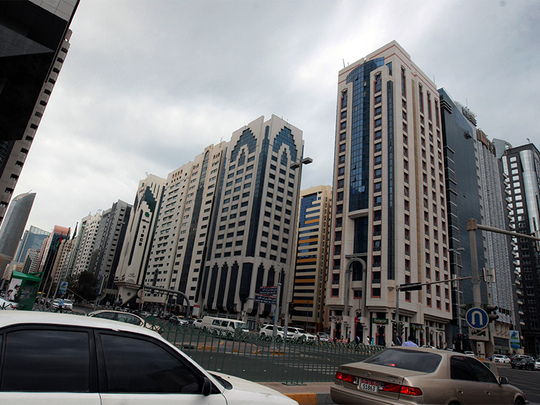Abu Dhabi: The rents in the capital Abu Dhabi are not likely to drop in 2016 because fewer rental units are coming into the market, according to analysts.
There will be no new housing units added to the market in 2016, both in prime areas as well as through affordable housing initiatives, May Hassan, financial analyst at real estate services company Jones Lang LaSalle (JLL), told Gulf News.
“As a result, rents during the next year are expected to remain stable or even increase slightly, similar to what occurred during 2015. In fact, the Abu Dhabi market saw a 5 per cent increase in rents in the first quarter of this year,” Hassan added.
A new property regulation that will come into effect in January, and which was announced in June, could aggravate the undersupply.
Shortage: Abu Dhabi has long had a shortage of affordable housing, and the 2013 removal of a cap that prevented landlords from increasing rent by more than five per cent each year exacerbated the situation.
Index in the works
“The new law focuses mainly on developers and investors, and is expected to make the market more transparent and attractive for those wishing to invest. But this urges greater caution on the part of developers. As a result, less development is likely to occur, especially in prime areas. And as long as there is limited supply, rents are unlikely to fall,” Hassan said.
As reported by Gulf News, an index that will guide rental values based on indicators like location, number of bedrooms and age is said to be in the works, but there is no indication as to when it will be announced or implemented.
“The index could resemble the one managed by the Dubai Land Department’s Real Estate Regulatory Agency (Rera), but it is unclear when this will be available in Abu Dhabi,” the analyst said.
A JLL 2015 report states that middle-income housing, which cater to families earning between Dh10,000 and Dh30,000 per month, is still located on the outskirts of the capital, far from the central business district.
Transport system
Moreover, there is no public transport system to serve those who live in more affordable suburbs like Mussaffah.
Affordable rental units in the heart of the city are in older, rundown buildings with limited access to parking lots. As a result, this has led to widespread sharing of apartments and villas, with some parts of the city accommodating twice as many households as leasable units.
Although some middle-income housing is being developed by Aldar Properties on Reem Island as part of its Meera project, and by Manazel Real Estate in Al Reef 2, these are not expected to be ready until 2018.
In the meantime, residents continue to complain about the high rents, especially in the face of declining oil prices.
“It is very difficult to find out about available rental properties in the city since they get snapped up as soon as they become vacant. We tried using the services of an agent, but the agency charged a hefty Dh5,000 commission for their services,” said R. Alam, a Bangladeshi homemaker.









